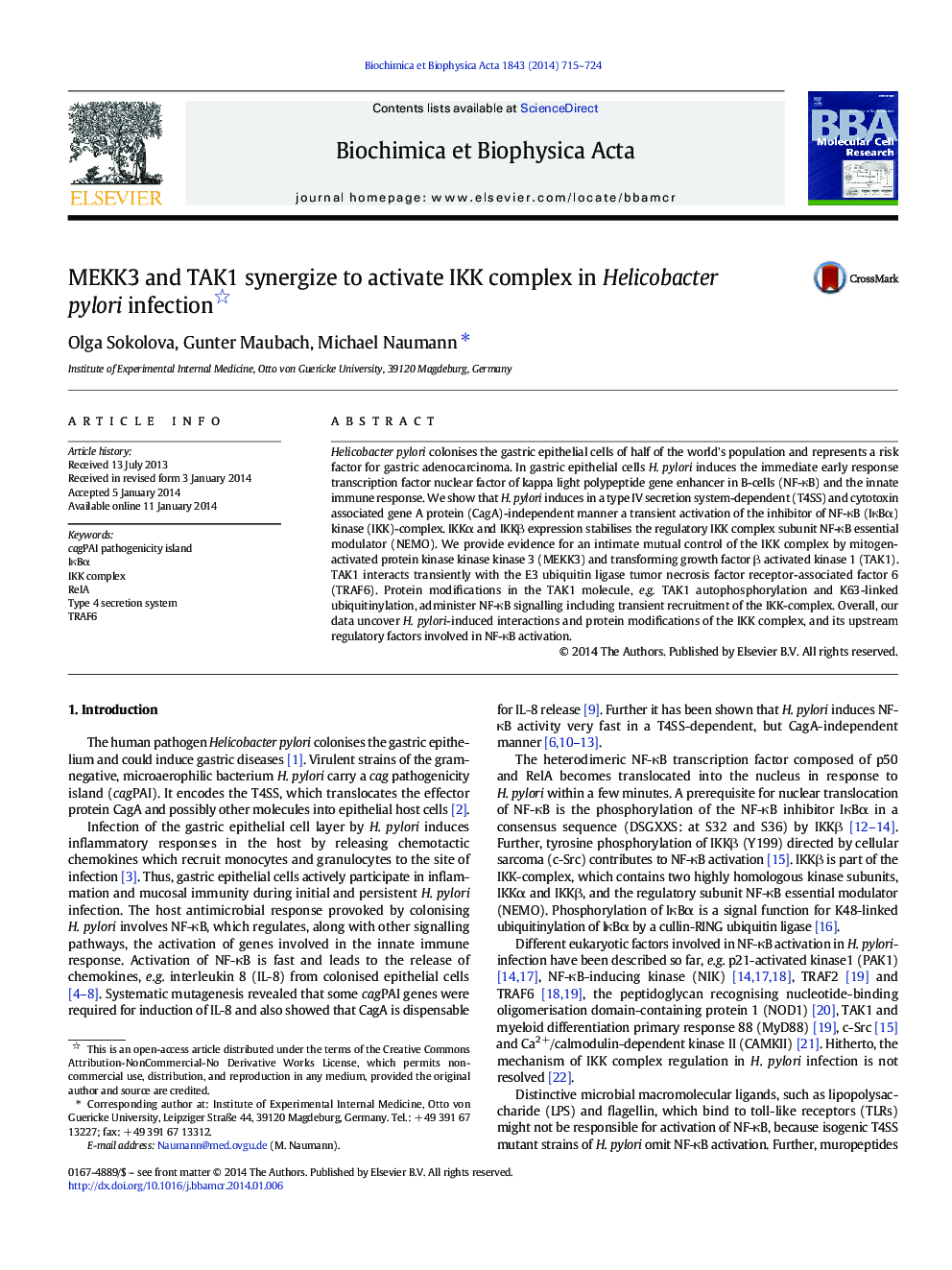| Article ID | Journal | Published Year | Pages | File Type |
|---|---|---|---|---|
| 10802068 | Biochimica et Biophysica Acta (BBA) - Molecular Cell Research | 2014 | 10 Pages |
Abstract
Helicobacter pylori colonises the gastric epithelial cells of half of the world's population and represents a risk factor for gastric adenocarcinoma. In gastric epithelial cells H. pylori induces the immediate early response transcription factor nuclear factor of kappa light polypeptide gene enhancer in B-cells (NF-κB) and the innate immune response. We show that H. pylori induces in a type IV secretion system-dependent (T4SS) and cytotoxin associated gene A protein (CagA)-independent manner a transient activation of the inhibitor of NF-κB (IκBα) kinase (IKK)-complex. IKKα and IKKβ expression stabilises the regulatory IKK complex subunit NF-κB essential modulator (NEMO). We provide evidence for an intimate mutual control of the IKK complex by mitogen-activated protein kinase kinase kinase 3 (MEKK3) and transforming growth factor β activated kinase 1 (TAK1). TAK1 interacts transiently with the E3 ubiquitin ligase tumor necrosis factor receptor-associated factor 6 (TRAF6). Protein modifications in the TAK1 molecule, e.g. TAK1 autophosphorylation and K63-linked ubiquitinylation, administer NF-κB signalling including transient recruitment of the IKK-complex. Overall, our data uncover H. pylori-induced interactions and protein modifications of the IKK complex, and its upstream regulatory factors involved in NF-κB activation.
Related Topics
Life Sciences
Biochemistry, Genetics and Molecular Biology
Biochemistry
Authors
Olga Sokolova, Gunter Maubach, Michael Naumann,
